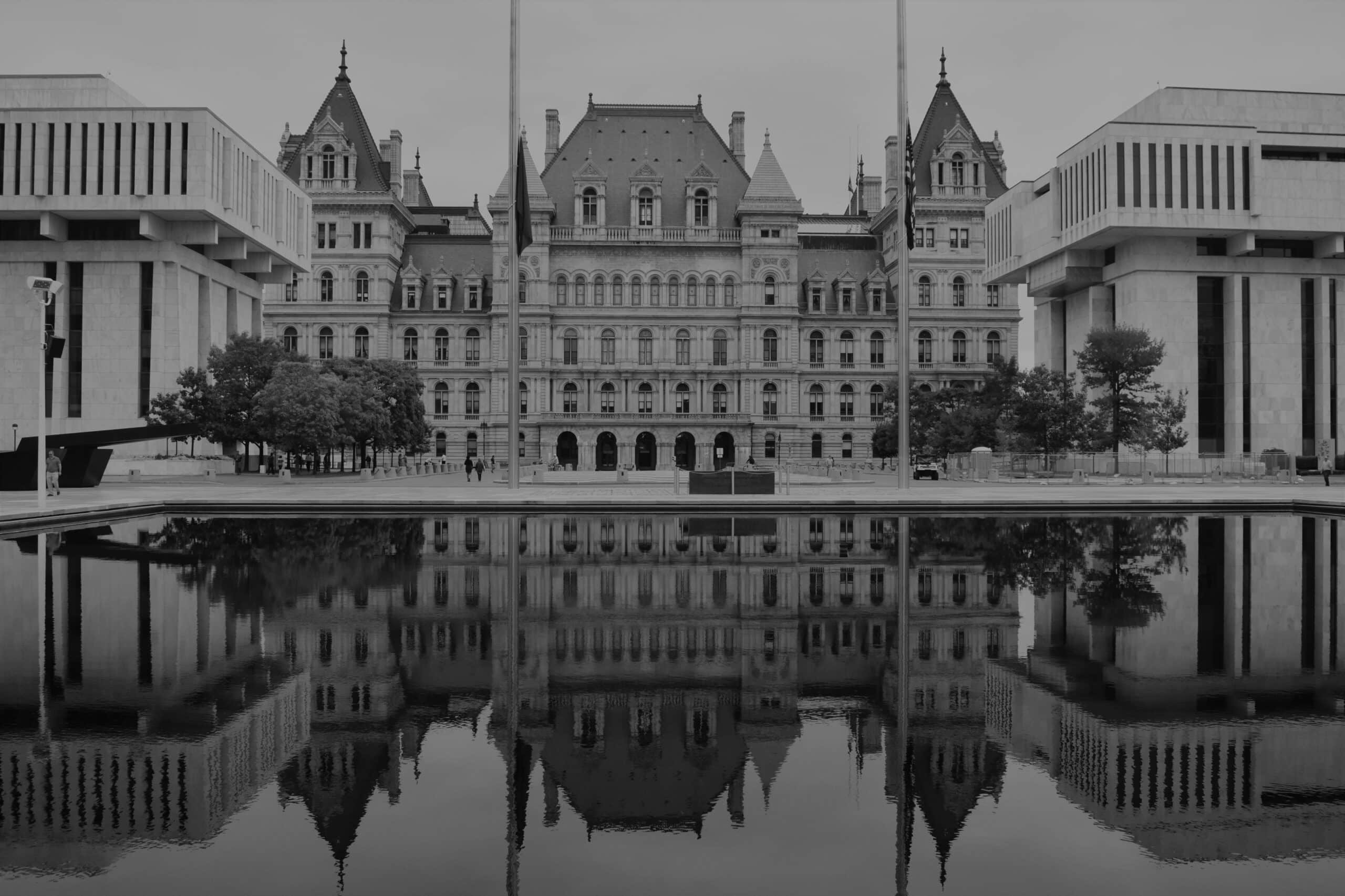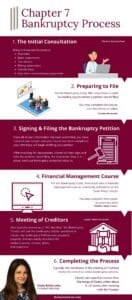What is Chapter 7 Bankruptcy?
Chapter 7 bankruptcy, also known as liquidation or straight bankruptcy, is the most common type of bankruptcy relief. This article will provide a step-by-step guide to the process of filing for Chapter 7 bankruptcy and answer some frequently asked questions.
How it Works
In bankruptcy proceedings, the trustee in charge will sell any assets of the debtor that are not exempt from liquidation and distribute the proceeds to the creditors. Even if the proceeds are significantly less than the amount owed, creditors will still receive payments in accordance with the Bankruptcy Code, which follows a hierarchy of debt prioritization. If all of
your assets are exempt from the reach of the Trustee, the Trustee will file a ”No Asset” report with the Court.
Chapter 7 Bankruptcy Process
The process for filing for Chapter 7 bankruptcy can feel like a daunting task, but with proper guidance, it can be a surprisingly simple process. Here is a step-by-step guide of what the average Chapter 7 debtor should expect:
The Initial Consultation
During the first meeting, prospective clients typically bring in financial information such as paystubs, bank statements, tax returns, billing statements, vehicle titles, and other relevant legal paperwork. The meeting takes about 1 hour, and we will review your paperwork and discuss your situation with you to determine if bankruptcy is right for you.
Preparing to File
Clients who decide to move forward with a bankruptcy will then take a mandatory credit counseling course, which can be completed online or over the phone and typically takes about 90 minutes. The Bankruptcy Code requires completion of a creditor counseling course before a Petition can be filed. The credit counseling certificate is provided to your bankruptcy lawyers by the company.
Signing & Filing the Bankruptcy Petition
Once our office has all necessary documentation and has been retained, we will begin drafting the Bankruptcy Petition. A client will then have a second meeting with our office to review the Petition for accuracy. Once satisfied that the Petition is truthful and accurate, the client will sign it, and shortly thereafter, our office will file it electronically with the Court. The bankruptcy is now commenced, and you are protected from your creditors by the Automatic Stay.
Financial Management Course
After your Petition is filed and ideally before your Meeting of Creditors, each bankruptcy debtor must complete a second online course on “Financial Management”, more commonly called the “second” or “post-filing” course. This is done on your own time and takes about 2 hours.
Meeting of Creditors
The only “court” appearance involved in a bankruptcy is with a Chapter 7 Trustee at what is known as the “Meeting of Creditors” or “341 Meeting.” This meeting is a brief conference (only about 10 minutes) during which the Trustee asks a bankruptcy debtor questions to ensure that the bankruptcy Petition was prepared properly and accurately describes the debtor’s assets, income, debts, and expenses. Your attorney will be with you during this brief hearing to assist you when answering questions.
Completing the Process
Most people can expect to receive their Discharge of Debts within about 8-10 weeks after meeting with the Trustee. Shortly after the Discharge is issued, the Bankruptcy Court will formally close your case, and your bankruptcy is complete.
How long does a Chapter 7 take?
The chapter 7 process generally takes about 4 months from the date of filing to the date the Court issues a discharge of debts. The automatic stay- the bankruptcy protection – kicks in once the petition is filed with the Court, and most creditors can no longer take action to collect debts.
How often can you file Chapter 7 Bankruptcy?
A chapter 7 may be filed 8 years from the date of filing of the previous chapter 7.
Do I need an attorney to file for Chapter 7 Bankruptcy?
It is highly recommended to hire an experienced bankruptcy attorney to guide you through the process. Bankruptcy laws can be complex, and having an attorney by your side can ensure that your rights and assets are protected and that you receive the best outcome possible.
Will I lose all of my property if I file for Chapter 7 Bankruptcy?
Not necessarily. The bankruptcy trustee will only sell non-exempt assets to pay off creditors. Many assets, such as your home and car, may be protected by exemptions, meaning you can keep them.
Can I still get credit after filing for Chapter 7 Bankruptcy?
Yes, it is possible to rebuild your credit after bankruptcy. While bankruptcy will remain on your credit report for up to 10 years, you can take steps to improve your credit score, such as paying bills on time and establishing a good payment history.
In conclusion, filing for Chapter 7 bankruptcy can be a challenging process, but with the help of an experienced attorney, it can also be a fresh start for individuals struggling with overwhelming debt. By understanding the steps involved in the process and seeking proper guidance, debtors can successfully navigate their way through Chapter 7 bankruptcy and emerge with a clean financial slate.
Read next: Chapter 7 vs Chapter 13 Bankruptcy
Copyright © 2024 Barbaruolo Law Firm
Site by CannaPlanners



